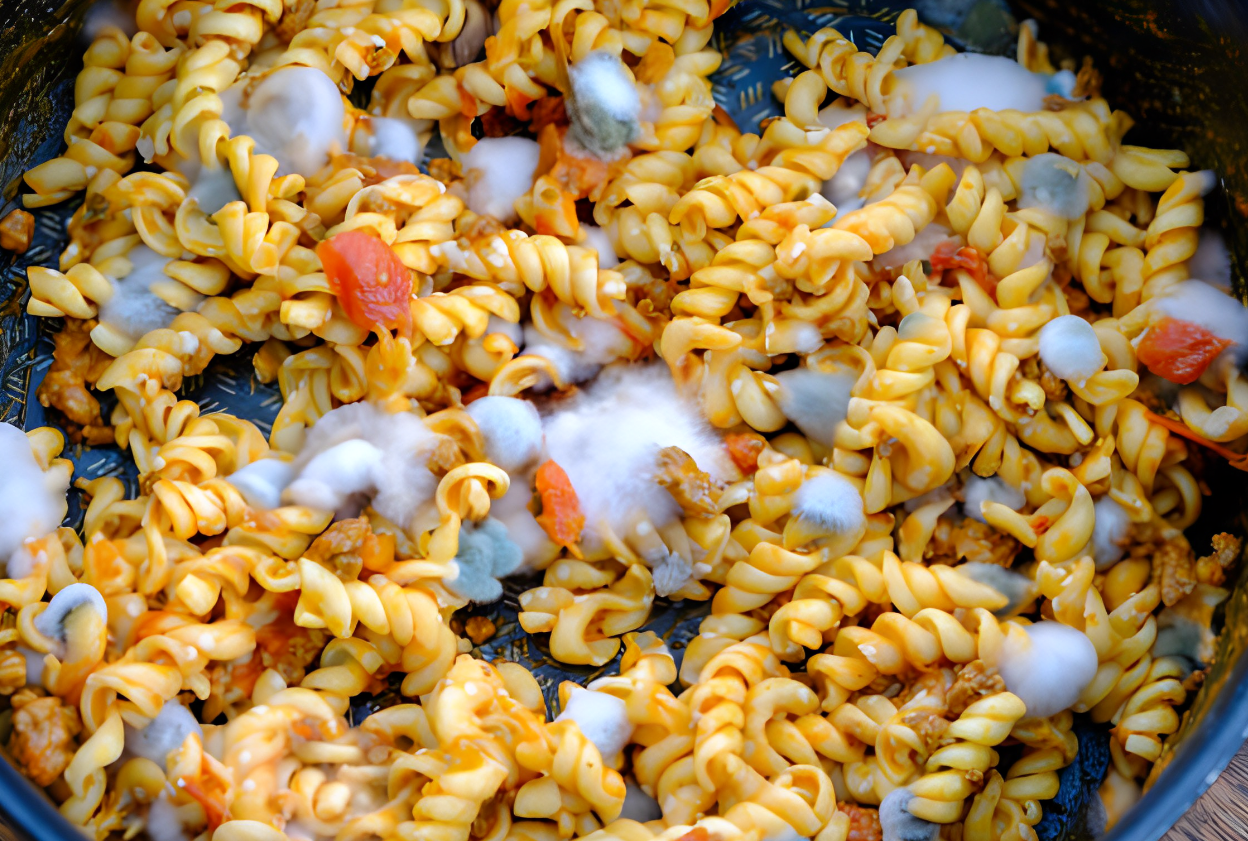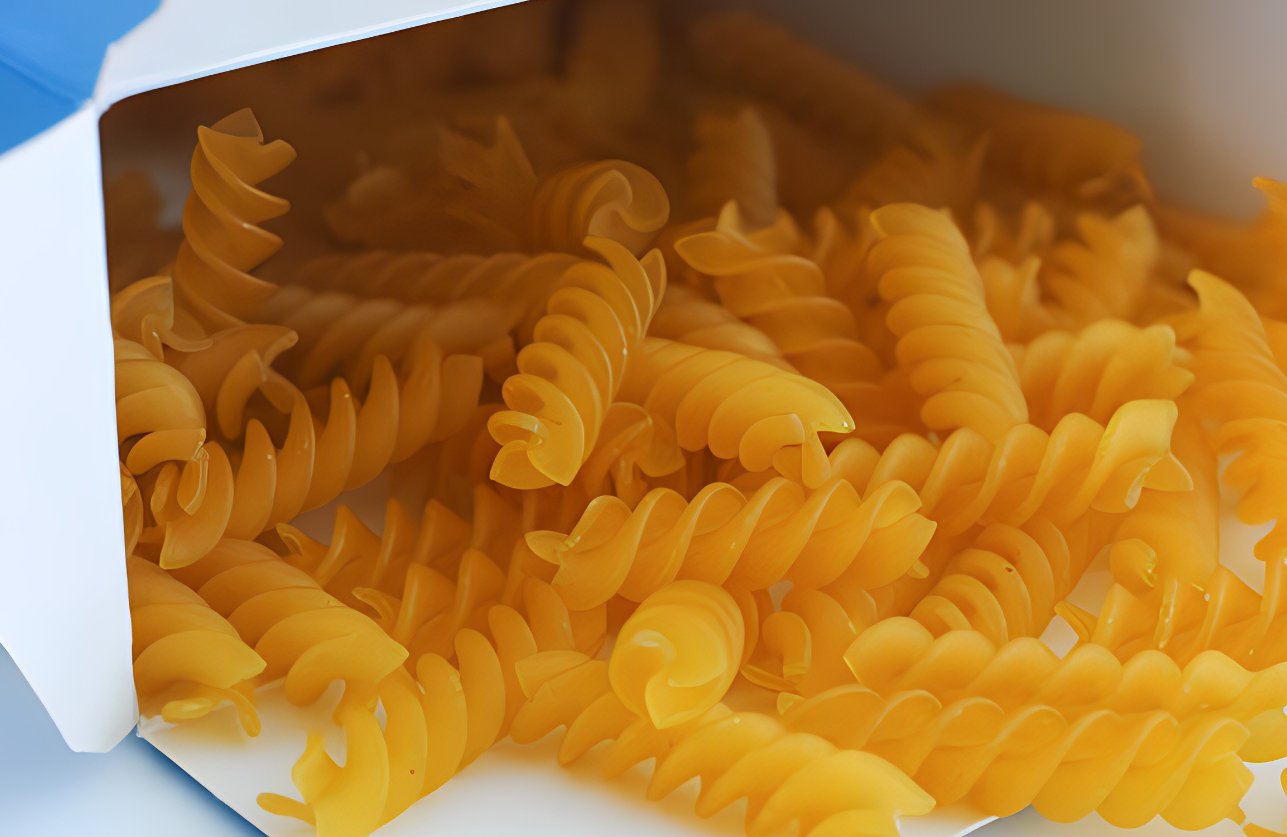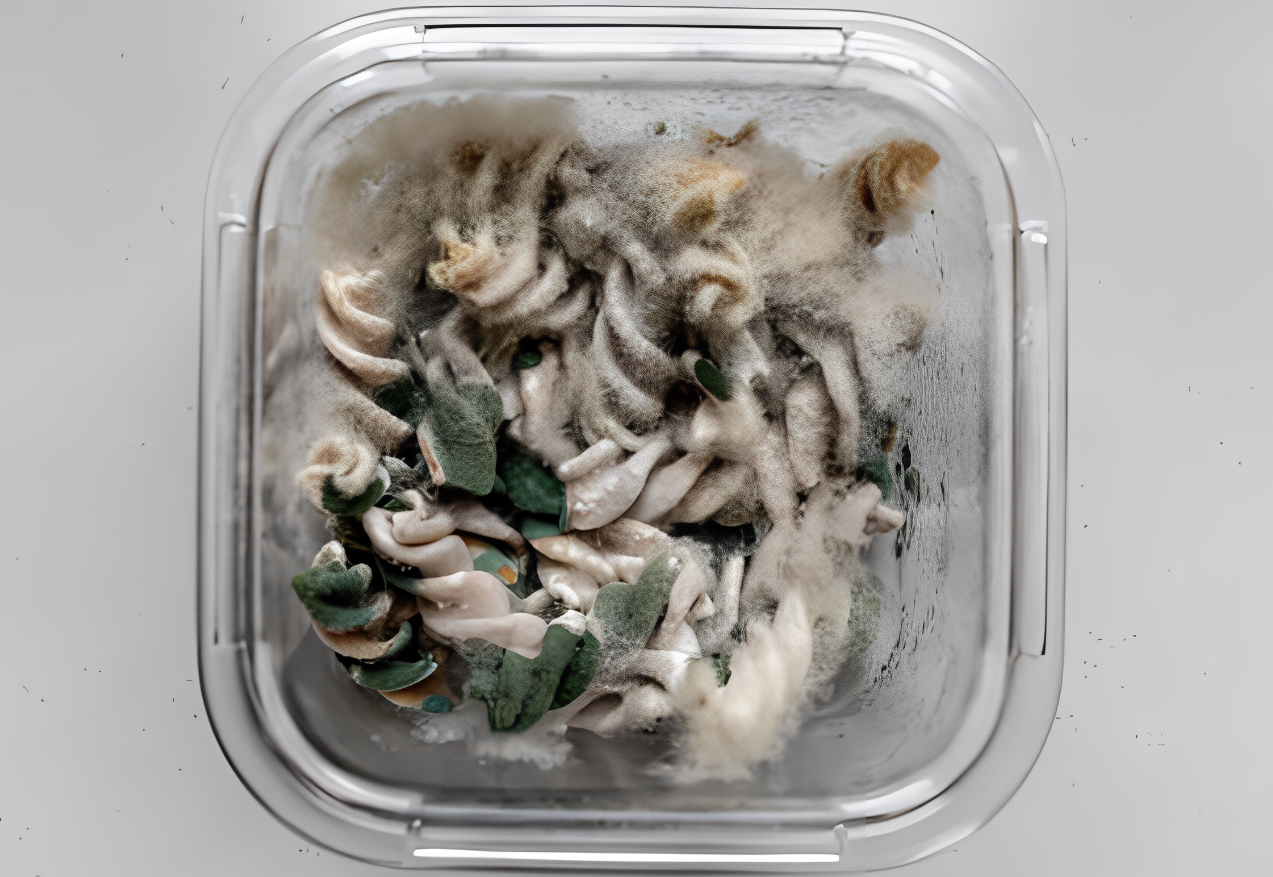Pasta is a versatile and beloved staple in many households around the world. Whether it’s spaghetti, penne, or fusilli, pasta can turn a simple meal into a culinary delight.
However, like any other pantry item, pasta is not immune to the inevitable question: does it go bad?
Here, we’ll delve into the shelf life of pasta, how to store it properly, and signs that indicate it might be time to bid farewell to that box in your cupboard.

Highlights:
- Stored properly, dry pasta has a long shelf life beyond its “best by” date in a cool, dry place.
- Cooked pasta can last up to 5 days in the fridge, but always check for signs of spoilage, like odors or unusual textures.
- Eating expired dry pasta is generally safe if stored well, up to three years past the expiration date.
- Keep pasta in a cool, dry place, sealed properly, and away from temperature fluctuations to maintain quality.
- Trust your senses – off odors, mold, discoloration, or a sticky texture indicate spoiled pasta.
Understanding Pasta Shelf Life
The good news is that pasta, when stored properly, has a remarkably long shelf life. Dry pasta, the most common variety found in grocery stores, typically comes with a “best by” or “use by” date on the packaging.
This date is a guideline for optimal quality rather than an expiration date. Dry pasta can last well beyond this date if stored in a cool, dry place.
Does Pasta Go Bad?
Yes, pasta can go bad, but it has a long shelf life if stored properly. Dry pasta can last well beyond its “best by” date if kept in a cool, dry place with sealed packaging. Look out for signs like off odors, mold, discoloration, or a sticky texture to determine if pasta is no longer suitable for consumption.
Does pasta go bad after cooked?

Yes, cooked pasta can go bad after a certain period. Typically, it lasts in the fridge for about 3–5 days before showing signs of expiration. Eating expired cooked pasta poses risks similar to consuming other expired foods, including the potential for foodborne illness.
Store and consume cooked pasta within the recommended timeframe to ensure safety and quality.
Read More: The 10 Best Pasta Pot with Strainer
Is It Ok to Eat Expired Dried Pasta?
Yes, it is generally okay to eat expired dried pasta, as it has a long shelf life and can be used well past the expiration date. However, it’s crucial to check for any signs of spoilage, such as a strange smell or off-putting odors.
If the pasta looks and smells fine, it is likely safe to consume even after expiration. Dry pasta can often be used up to three years beyond the printed date if stored properly.
Does an Opened Box of Pasta Go Bad?

Yes, an opened box of dry pasta can go bad over time, but it won’t necessarily expire. Opened dry pasta is good for about one year.
While it won’t spoil traditionally, its quality may diminish over time, affecting taste and texture. It’s essential to store opened dry pasta in a cool, dry place and seal it properly to maintain its quality for as long as possible. Refrigerating or freezing is unnecessary, as it won’t extend the shelf life of dry pasta.
Can you eat 5 day old pasta from the fridge?
While the USDA recommends consuming most cooked leftovers within 3-4 days, if your pasta has been properly stored in a refrigerator at 40 degrees F or below, it should generally be safe to eat up to 5 days.
However, always trust your senses—check for any signs of spoilage, such as off odors, unusual texture, or mold, before consuming. If it looks and smells fine, it’s likely safe to eat.
Does Dry Pasta Go Bad After Expiration Date?
Actually, dry pasta only goes well after the expiration date. Dry pasta is a stable, long-lasting product, and if stored properly in a cool, dry place with sealed packaging, it can be used well past its expiration date.
Dry pasta has a shelf life of two years, but it can often be extended to three years without any issues. Just ensure it doesn’t have an off smell or any signs of spoilage before use, especially for egg pasta, which can produce a rancid odor.
How Long is Uncooked Pasta Good for?
Uncooked dry pasta is generally good for about two to three years beyond its expiration date if stored in a cool, dry place and if it doesn’t have any unusual odors.
How Long Does Cooked Pasta Last Out of the Fridge?

Cooked pasta should not be left out at room temperature for more than two hours. After this time, the risk of bacterial growth increases, and the pasta may go bad.
To store cooked pasta, use a container with a tight-fitting lid or a zip-top bag, and consider adding a bit of oil or butter to prevent sticking.
It is advisable to refrigerate cooked pasta promptly to maintain its quality and safety.
How Long Does Cooked Pasta With Sauce Last in the Fridge?
Homemade pasta sauce can be stored in the fridge for three to four days, while store-bought sauce can last for up to four days.
As for cooked pasta should be consumed within three to five days if kept in the refrigerator. Homemade pasta, once cooked, typically lasts in the fridge for one to two days.
How Long Does Cooked Pasta Without Sauce Last in the Fridge
Cooked pasta without sauce can be stored in the refrigerator for up to five days in a sealed container. For longer storage, you can freeze it for up to three months in a plastic sealable bag or a freezer-safe container.
What Happens if You Eat Expired Dry Pasta?
If you eat expired dry pasta, the likelihood of experiencing foodborne illness is low due to its minimal moisture content. However, you may miss out on the optimal flavor and texture.
As long as the pasta shows no signs of spoilage, consuming it after the expiration date is unlikely to pose significant health risks. Always trust your senses and discard pasta that exhibits off odors, mold, or unusual textures.
Factors Influencing Pasta Shelf Life
1. Storage Conditions:
- Cool and Dry Environment: Storing pasta in a cool, dry place is crucial to maintaining its quality. Excessive moisture can lead to mold growth, so keeping pasta in an airtight container is essential.
- Avoid Temperature Fluctuations: Sudden temperature changes can affect the texture and flavor of pasta. Store it away from heat sources and avoid exposing it to extreme temperatures.
2. Packaging Integrity:
- Sealed Packaging: The packaging of the pasta plays a significant role in its shelf life. If the packaging is compromised or not sealed properly, air and moisture can enter, accelerating the degradation process.
Pasta Type:
- Whole Wheat vs. White Pasta: Whole wheat pasta contains more natural oils due to its bran and germ content, making it more prone to rancidity. White pasta, with its lower oil content, tends to have a longer shelf life.
How to tell if dried pasta is bad?
To determine if dried pasta is bad, look for signs such as off odors, the presence of mold, unusual discoloration, or a sticky and slimy texture. If the pasta exhibits any of these characteristics, it’s likely spoiled and should be discarded.
To check if dried pasta is bad:
- Smell it: If it has a strange or off-putting odor, it may be spoiled.
- Look for mold: Discard if you see any mold on the pasta.
- Check the color: Unusual discoloration is a sign of spoilage.
- Feel the texture: If it’s sticky or slimy, it’s likely gone bad.
1. Off Odors
If your pasta has a rancid or off-putting smell, it’s a clear sign that it has gone bad. Fresh pasta, in particular, is more susceptible to developing odors.
2. Visual Changes
Mold or Discoloration: The presence of mold or an unusual color on the pasta indicates spoilage. Discard pasta showing any signs of these visual changes.
3. Texture Alterations
Sticky or Slimy Texture: If your pasta feels excessively sticky or slimy, it has likely absorbed too much moisture and is past its prime.
Symptoms of food poisoning from pasta
Symptoms of food poisoning from pasta can include nausea, diarrhea, vomiting, stomach cramps, a high temperature (38C or above), and a general feeling of being unwell, such as fatigue and body aches.
If you experience these symptoms, staying hydrated and seeking medical attention if they persist is important.
Conclusion
In conclusion, if stored and handled properly, pasta is a pantry item with a remarkable shelf life. Keeping it in a cool, dry place, ensuring the packaging is sealed, and being vigilant for signs of spoilage are key practices in preserving the quality of your pasta.
While the “best by” date offers guidance, trust your senses—smell, sight, and touch—to determine if your pasta is still suitable for consumption.
By following these guidelines, you can continue enjoying pasta’s convenience and versatility in your culinary adventures.

Hello! I’m Paula Deen, a mother who loves to create memories in the kitchen. As a kitchen enthusiast, I love to do experiment with different kitchenware for daily recipes. This is my blog, where I’ll share my experience, knowledge, and reviews on various kitchenware and appliances.